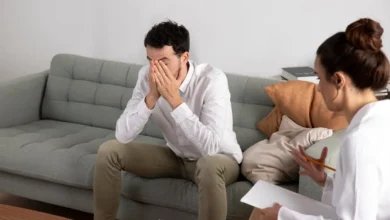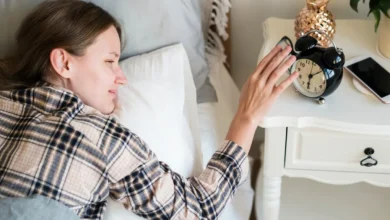Best 12 Healthy Sleep Hygiene Tips!
Cultivating certain habits, such as sticking to a regular sleep schedule and avoiding blue light exposure before bed, can help improve your sleep hygiene and help you get a good night’s rest.
Do you ever lie there, stare at the ceiling, and think, “When am I ever going to go to sleep?” Or do you wake up and think it’s time to get up when it’s 2 a.m.?
If you’re experiencing subpar sleep quality, it could be worth reviewing your sleep hygiene and how your routine hinders quality rest.
Let’s discuss sleep hygiene and what adjustments you can make to your morning and evening routine to get better sleep.
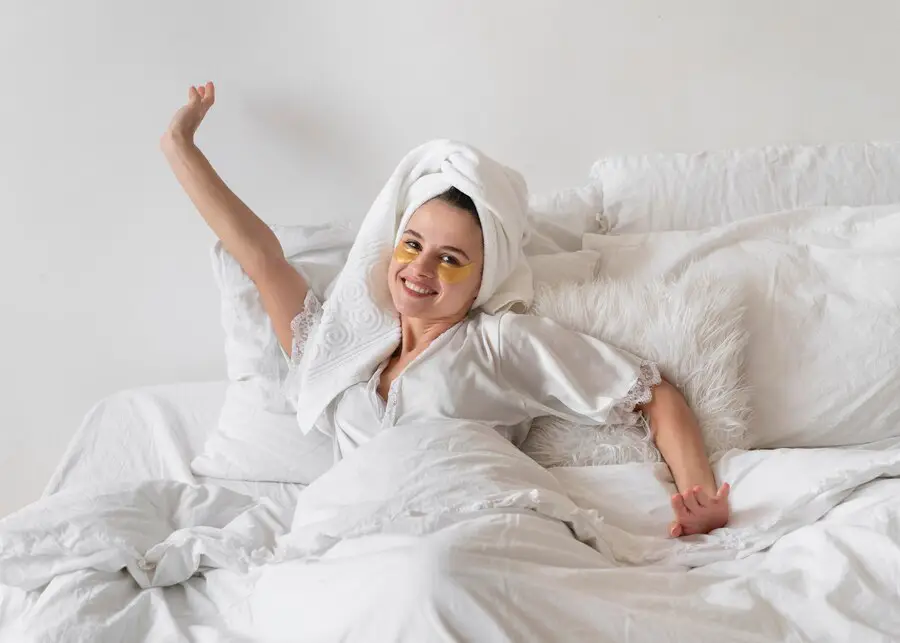
What is sleep hygiene?
Sleep hygiene means good sleep habits, which can help you get a good night’s sleep.
Sleep hygiene is important because good sleep is essential for mental and physical health and for overall quality of life.
It’s not only what you do immediately before you crawl into bed: Your daytime habits can also affect how well you rest. This can include:
- food and drink choices
- schedule
- evening routine
If you don’t get restful sleep, there are things you can do throughout the day and when you lie down to sleep to help improve your sleep.
Here are 12 ways to upgrade your sleep hygiene for better sleep.
1. Maintain Regular Sleep Hours: Establish regular sleep hours every day of the week.
Attempt to go to bed and wake up around the exact times each day, even on weekends for sleep hygiene. This helps boost your body’s sleep cycle (its internal clock), making it easier to get to sleep and get up daily.
Adhering to a regular sleep schedule might also bring down daytime sleepiness.
Choose a bedtime that gives you 7– 8 hours of sleep each night.
2. Develop a calming bedtime routine — and keep it up
A relaxing bedtime routine lets you wind down so you can sleep. A routine helps your body know when it is time for bed. That could help you fall asleep faster.
The best time to start your routine is 30- 60 minutes before you go to sleep.
You do whatever feels the most relaxing to you unless it involves anything with blue light. Here are some ideas:
- Take a warm bath or shower. The water is relaxing, and you might feel sleepy as your body temperature drops when you cool down.
- Do some light stretching or yoga to release tension in your muscles.
- Take a few minutes for meditation to soothe your body and brain.
- Try playing some calming music while you concentrate on your breathing.
- Take time to read a book, but avoid electronic readers emitting blue light.
And steer clear of anything stressful or too stimulating, such as emotionally charged talks or work.
3. Unplug before bedtime
Electronic devices such as your phone emit blue light, which can kill the melatonin in your body. It’s like when seeing sunlight can perk you up.
Melatonin is a hormone that regulates when you go to sleep and wake up. When your levels drop, you may find it harder to sleep.
According to a Harvard study, devices that emit blue light can also prevent your brain from winding down and falling asleep.
Keeping your phone close to your bed could even be subconsciously messing with your sleep, not to mention message notifications, buzzing, and light that can seemingly pop out of the blue in the dead of night.
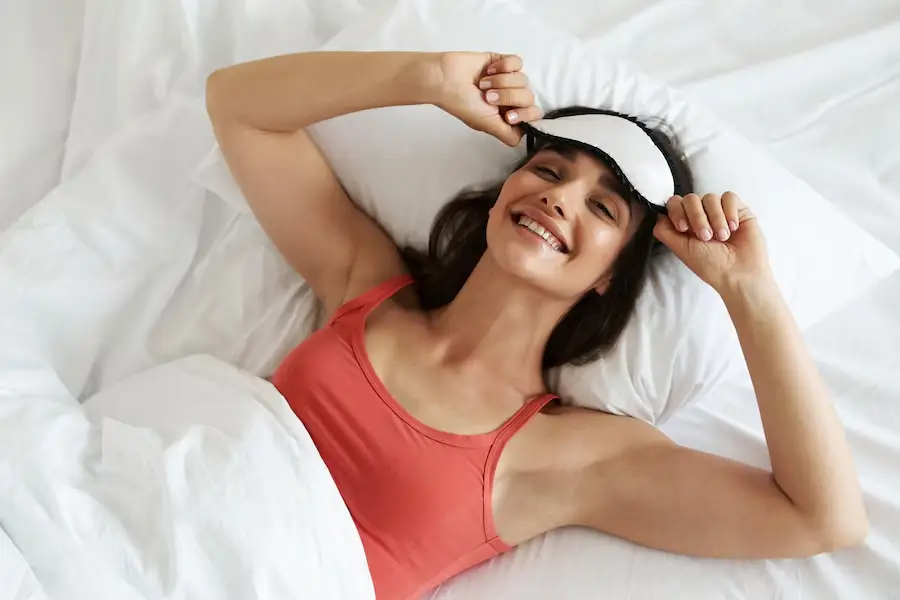
4. Exercise regularly for sleep hygiene
Just 30 minutes of aerobic exercise daily can lead to better sleep and a healthier you! Exercising outdoors may amplify the benefits since exposure to natural light can help regulate your sleep-wake cycle.
If you can’t go outside, all is not lost. Exercising indoors regularly can also help you sleep better.
But beware of working out an hour or two before bedtime. These can raise your energy and body temperature, possibly making it more difficult to fall asleep.
If you want to resettle into some productive or physical activity later in the day, consider doing stretches or yoga.
5. Limit your caffeine intake.
For example, once you drink caffeine, its effects can last 3–7 hours .trusted Source. This means that your afternoon cup of coffee can make it hard for you to go to bed and be awake and alert when you want to be.
While limiting caffeine consumption to the morning is generally best, remember that everyone’s caffeine tolerance is different.
Some may be able to endure it until midafternoon, while others may need to shut themselves off much earlier to fall asleep.
The less caffeine you drink, the more susceptible you are to its effects.
6. Personalize your sleep space.
To store the asanas and ease the worst, make your power-down environment a haven.
How you create your sleep space might ease the process of falling asleep and lead to better sleep.
That’s because, generally, the ideal temperature for sleeping is between 60 and 67 degrees Fahrenheit (15.6 and 19.4 degrees Celsius).
Also essential: Ensure a comfortable mattress, pillows and bed linens. The more relaxed you feel, the easier it can be to fall asleep. Want suggestions? Shop our marketplace of editor-trusted and expert-verified pillow and mattress recommendations.
If you’re a light sleeper or your neighbours are boisterous, a good pair of earplugs or a white noise machine may help you sleep through the ruckus.
If your bedroom is flooded with light, you may want to try blackout curtains or an eye mask to minimize light exposure in your sleep environment.
Q: Can a mattress that relieves pressure points (like a foam mattress) help us sleep better?
Anonymous
A: If you’ve sore spots, a mattress that alleviates pressure points might work well for you.
If the mattress offers comfort and support, you can enjoy a good night’s sleep.
The mattress type and its firmness are a matter of individual preference. As a rule of thumb, an older mattress, older than 10 years or visibly sagging, is unlikely to provide good comfort or support.
A mattress that keeps your spine straight while sleeping is key to relaxing the structures supported by your spine while relaxing at night.
A well-adjusted spine is essential to relieve back pain and maintain proper posture.
Angelica Balingit, M.D., board-certified internal medicine
Answers are the opinions of our medical experts. All content is published for informational purposes and should not be considered formal, professional, medical or legal advice.
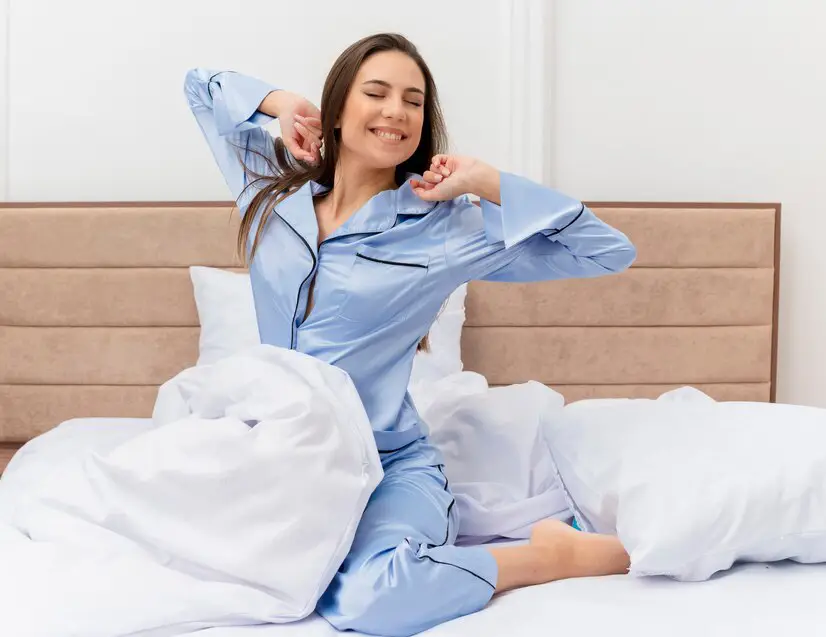
7. Reserve your bed for sleep and sex.
When we have a comfortable bed, it can be hard to resist the temptation to read, work, chat on the phone, watch TV or engage in other activities.
You should only sleep and have sex in your bed, though. This helps solidify the connection between your bed and sleep in your brain, and you’ll find it easier to fall asleep.
For some people, yes.” Possible fix: Reading can also be a way to unwind before bed, but even books can disrupt your ability to sleep if they keep your brain on high alert. Read on the couch before getting into bed.
8. Wait until you’re tired to go to bed.
If you’re not sleepy, steer clear of the bed as you lie down and toss. Instead, do a relaxing activity until you’re tired, and then go to bed.
Get up if you haven’t fallen asleep within 20 minutes of hitting the sack. Being unable to sleep can make you feel irritated or anxious, further preventing you from getting any rest.
When you get out of bed, find an activity that helps you relax — maybe reading in a chair or doing some stretches until you are sleepy enough to climb back onto your mattress.
9. Nap for a shorter period — or quit if you can
The Mayo Clinic recommends not taking a midday nap on weekends because it can make it more difficult to fall asleep at night and could make waking up during the night more likely.
If you do need to nap:
- 20 minutes or lessTrusted Source it to.
- Avoid late afternoon napping.
Napping may have a different impact on the sleep patterns of older adults compared to younger adults, although the magnitude of its effect remains uncertain.
Reduce stress before bedtime. “If we have a million things in our head before bed, our brain can’t unwind from the stress,” explains Kraig.
Worrying about issues that concern you can keep you tossing and turning during the day. To keep your worries from keeping you awake:
10. Before bed, compile a list of your worries to help get them out of your mind.
If your list stresses you out, write that down, too. Focus on what you must do tomorrow and the rest of the week, then see if you can chill out.
Studies have suggested that a weighted blanket could help with anxiety and insomnia and offer benefits similar to deep pressure therapy.
Consider meditating before bedtime to help relax your mind.
11. Limit large meals before bed.
Consuming a heavy meal before bed could interfere with the quality of your sleep. It can also trigger symptoms of acid reflux, a condition that may prevent you from sleeping.
Experts Trusted Source also advises against alcohol and nicotine, particularly before bedtime, as they can affect the quality of your sleep.
12. Manage your light exposure.
Exposing yourself to natural light can be beneficial in regulating your circadian rhythm. It’s best to be exposed to sunlight early in the morning and throughout the day, when possible, experts Trusted Source says.
Reducing light exposure in the evening may also be helpful: The less light you have in the evening, the more easily you fall asleep, and the more your body may produce the hormones and chemicals you need to sleep. You can do this by:
- replacing bulbs in the rooms you spend time in before bed with warm-light spectrum lightbulbs
- turning lights down in the hours leading up to bedtime
- dimming lights in the hours leading up to bed, if feasible
- Putting your phone or computer in “night” mode, which limits blue light exposure by turning the screen amber after sunset
If you’re a shift worker, you can take different steps to manage light exposure and support sleep.
The bottom line
Sleep hygiene means having good sleep habits. What you do during the day and shortly before going to bed can influence the quality of your sleep hygiene.
Here are ways to fall asleep faster — and stay asleep for hours. The vast majority of these relate to enhancing your sleep hygiene.
Maintaining a regular schedule, developing a calming bedtime routine, exercising, keeping your bedroom dark and at an agreeable temperature, and watching what you eat and drink can all affect the quality of your sleep hygiene.
If you keep struggling with the disruption of your sleep hygiene or with insomnia, make an appointment to see your doctor. They’ll be able to figure out if some underlying condition is behind your sleep problems and, if so, can treat you accordingly.

